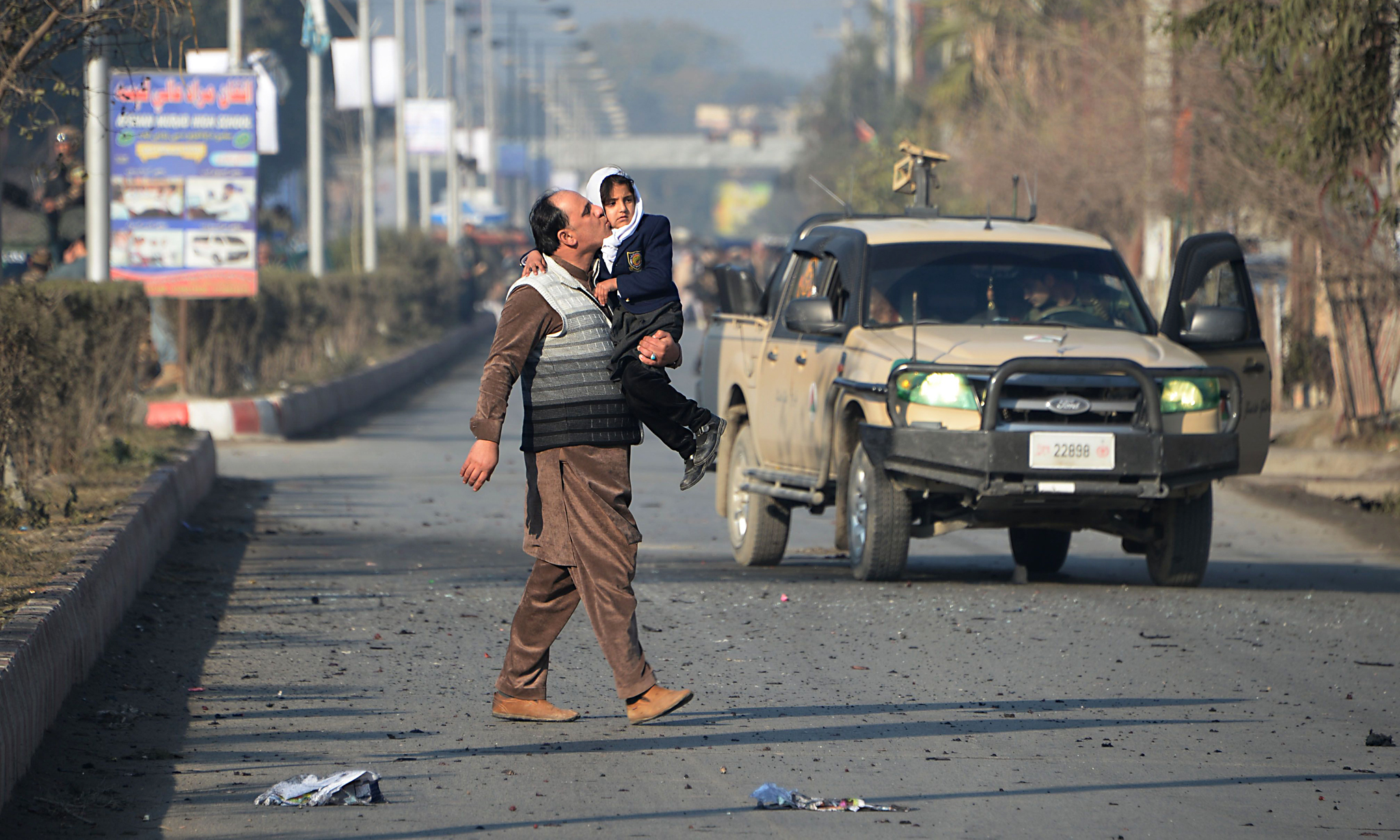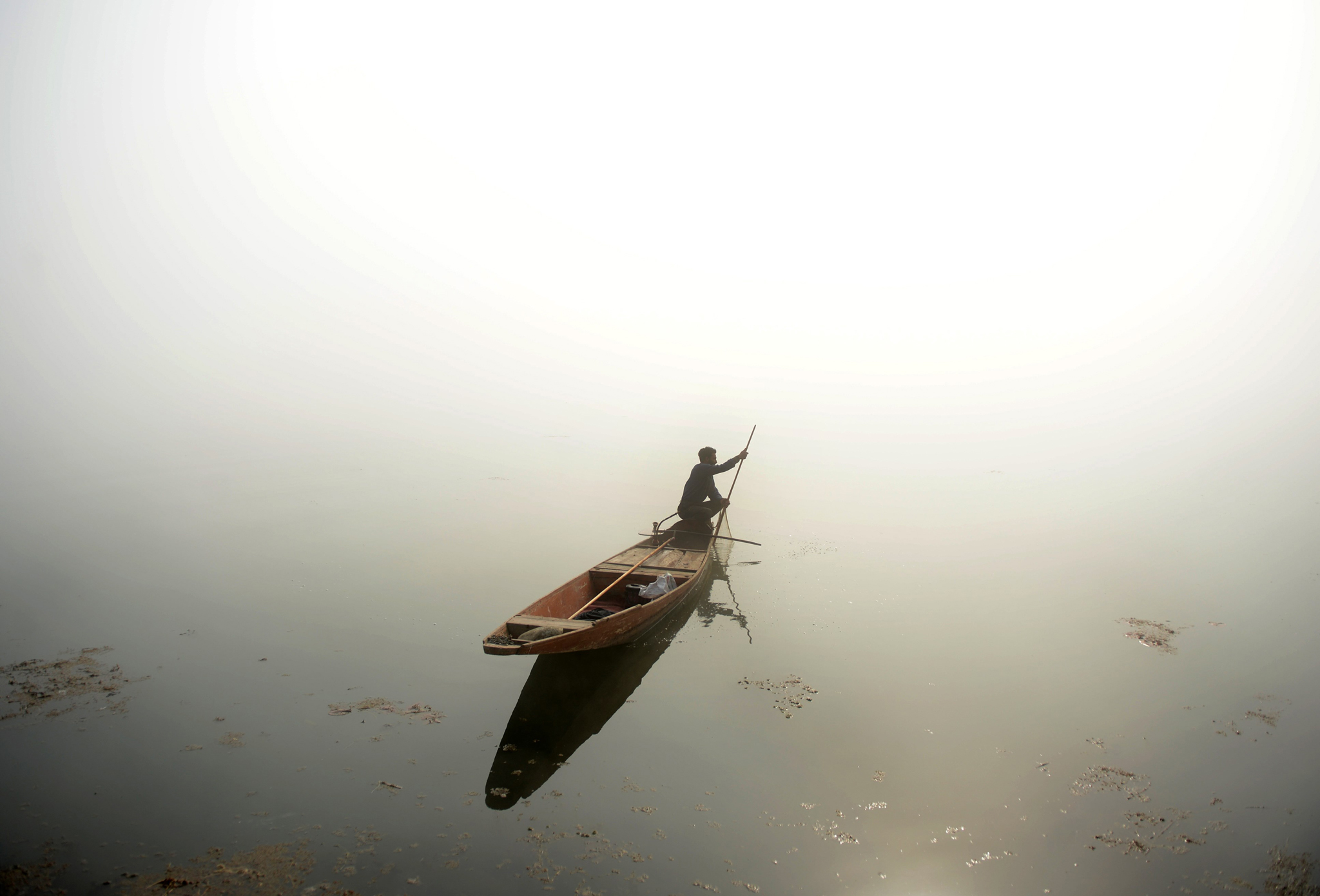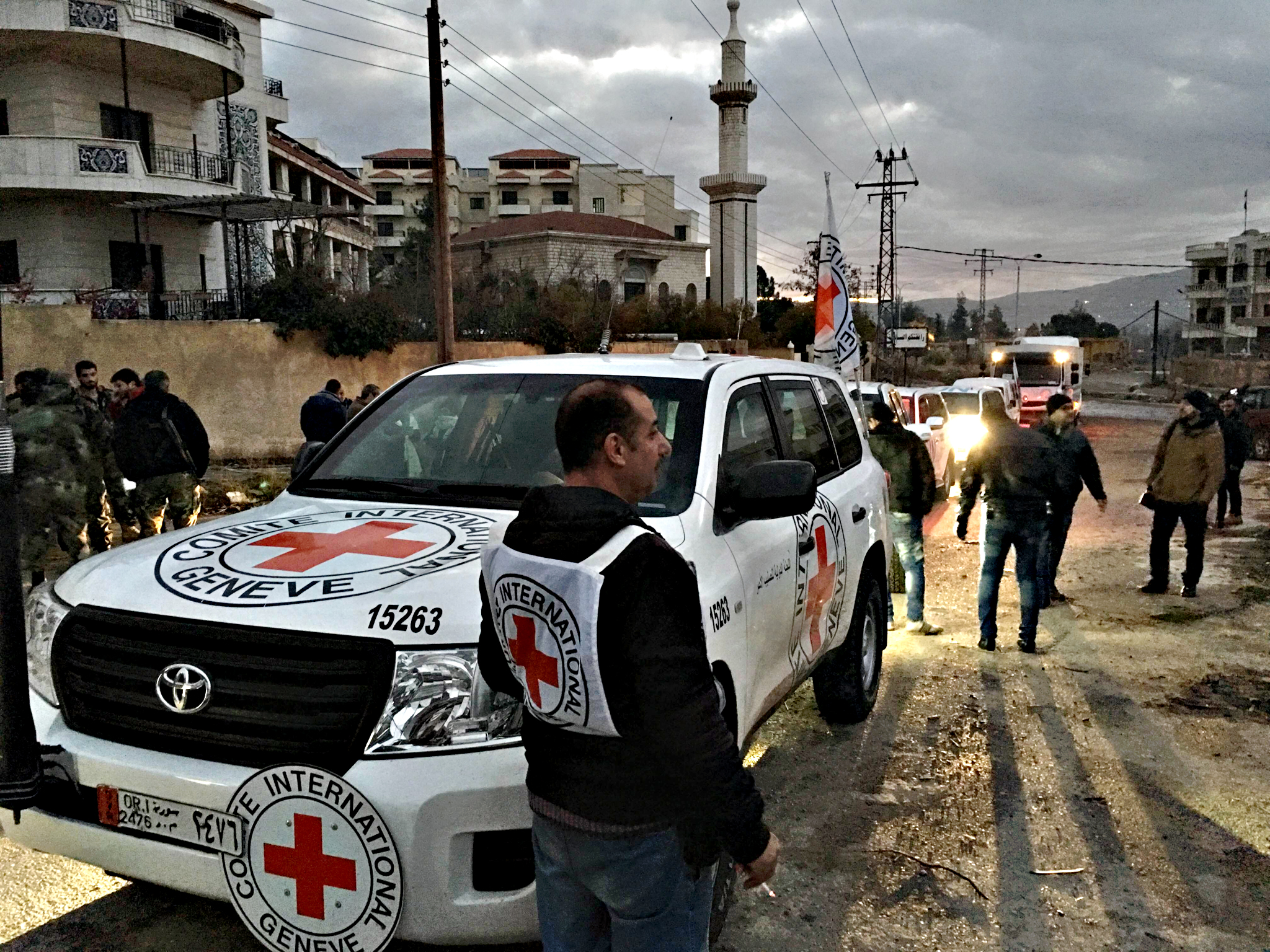.
Samuel Johnson: from Review of Soame Jenyns, A Free Enquiry into the Nature and Origin of Evil, in The Literary Magazine, 17 July 1757
A Nepalese worker demolishes a house that was destroyed during an earthquake at Sankhu, on the outskirts of capital Kathmandu, Nepal on Wednesday: photo by Narendra Shrestha/EPA, 13 January 2016
Naga Sadhus or Hindu holy men, smeared with ash, pass on a chillum to
smoke inside their makeshift camps near the confluence of the river
Ganges and the Bay of Bengal, ahead of the “Makar Sankranti” festival at
Sagar Island, south of Kolkata, India: photo by Rupak De Chowdhuri/Reuters, 13 January 2016
Samuel Johnson: from Review of Soame Jenyns, A Free Enquiry into the Nature and Origin of Evil, in The Literary Magazine, 17 July 1757
Having thus despatched the
consideration of particular evils, he comes, at last, to a
general reason, for which evil may be said to be our
good. He is of opinion, that there is some inconceivable
benefit in pain, abstractedly considered; that pain, however
inflicted, or wherever felt, communicates some good to the
general system of being, and, that every animal is, some way or
other, the better for the pain of every other animal. This
opinion he carries so far, as to suppose, that there passes some
principle of union through all animal life, as attraction is
communicated to all corporeal nature; and, that the evils
suffered on this globe, may, by some inconceivable means
contribute to the felicity of the inhabitants of the remotest
planet.
Israeli soldiers from the home front command unit take part in a
drill simulating a non-conventional attack at the Ben-Gurion University
of the Negev in the southern city of Beersheba, Israel on Wednesday: photo by Amir Cohen/Reuters, 13 January 2016
How the origin of evil is
brought nearer to human conception, by any inconceivable
means, I am not able to discover. We believed, that the present
system of creation was right, though we could not explain the
adaptation of one part to the other, or account for the whole succession
of causes and consequences. Where has this inquirer added to the
little knowledge that we had before? He has told us of the
benefits of evil, which no man feels, and relations between
distant parts of the universe, which he cannot himself conceive.
There was enough in this question inconceivable before, and we
have little advantage from a new inconceivable solution.
A Nepalese worker demolishes a house that was destroyed during an earthquake at Sankhu, on the outskirts of capital Kathmandu, Nepal on Wednesday: photo by Narendra Shrestha/EPA, 13 January 2016
I do not mean to reproach this
author for not knowing what is equally hidden from learning and
from ignorance. The shame is, to impose words, for ideas, upon
ourselves or others. To imagine, that we are going forward, when
we are only turning round. To think, that there is any difference
between him that gives no reason, and him that gives a reason,
which, by his own confession, cannot be conceived.
An
Afghan man kisses his daughter as he walks near an attack from a
building close to the Pakistan consulate in Jalalabad. A suicide bombing
followed by gunfire rocked an
area near the Pakistani consulate in the eastern Afghan city of
Jalalabad on Wednesday: photo by Noorullah Shirzada/AFP, 13 January 2016
But, that he may not be thought
to conceive nothing but things inconceivable, he has, at last,
thought on a way, by which human sufferings may produce good
effects. He imagines, that as we have not only animals for food,
but choose some for our diversion, the same privilege may be
allowed to some beings above us, who may deceive, torment, or
destroy us, for the ends, only, of their own pleasure or
utility. This he again finds impossible to be conceived,
but that impossibility lessens not the probability of the
conjecture, which, by analogy, is so strongly confirmed.
A Kashmiri fisherman rows his boat on Dal lake during dense fog in Srinagar: photo by Mustafa Tauseef via FT Photo Diary, 13 January 2016
I cannot resist the temptation
of contemplating this analogy, which, I think, he might have
carried further, very much to the advantage of his argument. He
might have shown, that these "hunters, whose game is man," have
many sports analogous to our own. As we drown whelps and kittens,
they amuse themselves, now and then, with sinking a ship, and
stand round the fields of Blenheim, or the walls of Prague, as we
encircle a cockpit. As we shoot a bird flying, they take a man in
the midst of his business or pleasure, and knock him down with an
apoplexy. Some of them, perhaps, are virtuosi, and delight in the
operations of an asthma, as a human philosopher in the effects of
the air-pump. To swell a man with a tympany is as good sport as
to blow a frog. Many a merry bout have these frolick beings at
the vicissitudes of an ague, and good sport it is to see a man
tumble with an epilepsy, and revive and tumble again, and all
this he knows not why. As they are wiser and more powerful than
we, they have more exquisite diversions; for we have no way of
procuring any sport so brisk and so lasting, as the paroxysms of
the gout and stone, which, undoubtedly, must make high mirth,
especially if the play be a little diversified with the blunders
and puzzles of the blind and deaf. We know not how far their
sphere of observation may extend. Perhaps, now and then, a merry
being may place himself in such a situation, as to enjoy, at
once, all the varieties of an epidemical disease, or amuse his
leisure with the tossings and contortions of every possible pain,
exhibited together.
People collect their belongings from a heavily damaged building in the aftermath of a car bomb explosion in commercial area of New Baghdad, Iraq, Tuesday: photo by Khalid Mohammed/AP, 12 January 2016
One sport the merry malice of
these beings has found means of enjoying, to which we have
nothing equal or similar. They now and then catch a mortal, proud
of his parts, and flattered either by the submission of those who
court his kindness, or the notice of those who suffer him to
court theirs. A head, thus prepared for the reception of false
opinions, and the projection of vain designs, they easily fill
with idle notions, till, in time, they make their plaything an
author; their first diversion commonly begins with an ode or an
epistle, then rises, perhaps, to a political irony, and is, at
last, brought to its height, by a treatise of philosophy. Then
begins the poor animal to entangle himself in sophisms, and
flounder in absurdity, to talk confidently of the scale of being,
and to give solutions which himself confesses impossible to be
understood. Sometimes, however, it happens, that their pleasure
is without much mischief. The author feels no pain, but while
they are wondering at the extravagance of his opinion, and
pointing him out to one another, as a new example of human folly,
he is enjoying his own applause and that of his companions, and,
perhaps, is elevated with the hope of standing at the head of a
new sect.
A relief convoy carrying aid entering the besieged Syrian town of Madaya. The Syrian Arab Red Crescent said 44 trucks loaded with food and other
aid entered the rebel-held town, while 21 other trucks went to the
government-controlled towns of Fuaa and Kafraya on Tuesday: photo by ICRC/AFP, 12 January 2016
Many of the books which now
crowd the world, may be justly suspected to be written for the
sake of some invisible order of beings, for surely they are of no
use to any of the corporeal inhabitants of the world. Of the
productions of the last bounteous year, how many can be said to
serve any purpose of use or pleasure! The only end of writing is
to enable the readers better to enjoy life, or better to endure
it; and how will either of those be put more in our power, by him
who tells us, that we are puppets, of which some creature, not
much wiser than ourselves, manages the wires! That a set of
beings, unseen and unheard, are hovering about us, trying
experiments upon our sensibility, putting us in agonies, to see
our limbs quiver; torturing us to madness, that they may laugh at
our vagaries; sometimes obstructing the bile, that they may see
how a man looks, when he is yellow; sometimes breaking a
traveller's bones, to try how he will get home; sometimes wasting
a man to a skeleton, and sometimes killing him fat, for the
greater elegance of his hide.
An
Afghan man kisses his daughter as he walks near an attack from a
building close to the Pakistan consulate in Jalalabad. A suicide bombing
followed by gunfire rocked an
area near the Pakistani consulate in the eastern Afghan city of
Jalalabad on Wednesday: photo by Noorullah Shirzada/AFP, 13 January 2016
This is an account of natural
evil, which though, like the rest, not quite new, is very
entertaining, though I know not how much it may contribute to
patience. The only reason why we should contemplate evil is, that
we may bear it better; and I am afraid nothing is much more
placidly endured, for the sake of making others sport.
A Kashmiri fisherman rows his boat on Dal lake during dense fog in Srinagar: photo by Mustafa Tauseef via FT Photo Diary, 13 January 2016
A Nepalese worker demolishes a house that was destroyed during an
earthquake at Sankhu, on the outskirts of capital Kathmandu, Nepal on
Wednesday: photo by Narendra Shrestha/EPA, 13 January 2016
Naga Sadhus or Hindu holy men, smeared with ash, pass on a chillum to
smoke inside their makeshift camps near the confluence of the river
Ganges and the Bay of Bengal, ahead of the “Makar Sankranti” festival at
Sagar Island, south of Kolkata, India: photo by Rupak De Chowdhuri/Reuters, 13 January 2016
A relief convoy carrying aid entering the besieged Syrian town of Madaya. The Syrian Arab Red Crescent said 44 trucks loaded with food and other
aid entered the rebel-held town, while 21 other trucks went to the
government-controlled towns of Fuaa and Kafraya on Tuesday: photo by ICRC/AFP, 12 January 2016










No comments:
Post a Comment